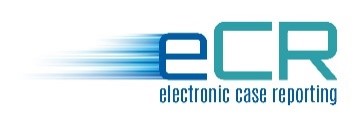Exchanging Data More Efficiently
Updated May 2, 2022
Exchanging data between systems (interoperability) quickly and accurately is challenging when information is in various databases that do not communicate with one another. Giving healthcare providers, public health, and others a better solution to share, access, or manage data efficiently is critical now and for future action. CDC and other healthcare organizations are addressing this issue by using HL7® (Health Level Seven International) FHIR® (Fast Healthcare Interoperability Resources). “The Public Health Informatics Office, also known as PHIO, is leading many activities to promote the adoption of HL7® FHIR® standards across the agency, resulting in advancing our nation’s infrastructure for public health data collection and research,” states PHIO’s Director Dr. Adi Gundlapalli. CDC programs can now get involved, learn from others, and promote the agency-wide adoption of HL7® FHIR®.
What is HL7® FHIR®?
HL7® FHIR® allows health data to be exchanged between healthcare and public health agencies quickly and efficiently. It adopts and combines data standards for easy implementation, while remaining flexible to meet the needs of developers, healthcare providers, and other partners. The use of established standards and technology promotes timely data access and interoperability, making data exchange between systems more efficient.
Agency Benefits and Examples
Over 50 CDC projects are utilizing HL7® FHIR®. Below are two examples that demonstrate how HL7® FHIR® can advance the exchange of data between healthcare and public health. Activities increasing collaboration and use of HL7® FHIR® to help CDC achieve its data modernization goals are also described.

The National Healthcare Safety Network (NHSN) has taken on a new approach to minimize the reporting burden of facilities and providers when it comes to data collection. This involves radically shortening the timeframe for new data acquisition and adopting new healthcare data exchange standards. NHSNLink accomplishes this with its use of FHIR® and third-party apps to acquire, evaluate, and submit data.
NHSNLink, an open source FHIR® application for public health reporting, uses the FHIR® standard to securely connect to a healthcare facility’s electronic health record (EHR) system, via cloud-based or on-site integration. NHSNLink extracts data, evaluates the data using pre-defined measure definitions, generates measure and line-level reports with the option for pre-submission review, and submits data directly to NHSN.

Electronic case reporting (eCR) is the automated generation and transmission of case reports from electronic health records to public health agencies (PHAs) for review and action. eCR operates behind the scenes in EHRs, using data collected by clinicians as part of care delivery to identify potential cases, create case reports, confirm reportability through the application of rules, and securely transmit the information to the appropriate PHAs.
Electronic health record vendors can either build eCR capability into their EHR product or use the . CDC collaborated with the Association of Public Health Laboratories to create the using HL7® FHIR®. The application queries for data in the EHR and automatically generates and transmits case reports to PHAs. FHIR® is required of EHRs to meet regulations within the 21st Century Cures Act. The eCR Now FHIR App saves EHR vendors development time and resources.
Increase Adoption through Collaboration
The Center for Surveillance, Epidemiology, and Laboratory Services’ PHIO and the office of the Deputy Director for Public Health Science and Surveillance collaborate on activities to increase awareness and use of HL7® FHIR® by internal and external partners. These efforts help public health align with and benefit from widespread standardization and transformation that are happening around digital health data.
FHIR® Community of Practice
- Meets monthly to showcase projects that have successfully implemented HL7® FHIR® standards.
- Gathers a community of more than 150 internal and external health IT staff, developers, and other public health partners to discuss effective ways to securely exchange data between public health information systems.
- Develops tools to support use of HL7® FHIR®, such as a FHIR® Guidelines Development Checklist, summaries of CDC projects, and Frequently Asked Questions.
Public Health FHIR® Implementation Collaborative
- Provides a forum for peer-to-peer learning and developing FHIR® tools to support pilots.
- Gathers STLT steering committee and partners, such as Association of State and Territorial Health Officials (ASTHO), Council of State and Territorial Epidemiologists (CSTE), and National Association of County and City Health Officials (NAACHO).
- Identifies key implementation challenges and drives use case selection and implementation.
- Provides an opportunity to take part in training and learning activities, such as workshops.
FHIR® Technical Advisory Services
- Offers advisory services, such as office hours and workshops, for CDC programs at all FHIR® implementation stages – initial planning to development to debugging existing approaches.
- Creates partnerships with FHIR® practitioners to learn about existing building blocks and common approaches.
- Highlights the value FHIR® brings to public health by promoting adoption of standardized FHIR® approaches.
Helios FHIR® Accelerator
- Commits to the equitable and effective exchange of data for public health through an alliance of government, private sector, and philanthropic partners.
- Helps the public health community address known gaps in the FHIR® standard to help promote more flexible and effective data exchanges with healthcare, the public, and other sectors beyond public health.
- Varies from other HL7® accelerators by focusing on identifying public health use cases that can be scaled for adoption.
- Connects CDC, the Office of the National Coordinator for Health Information Technology (ONC), STLT and federal public health agencies, and private and philanthropic sector partners in a forum for multi-disciplinary dialogue and collaboration.
Learn more about Helios FHIR® Accelerator.
